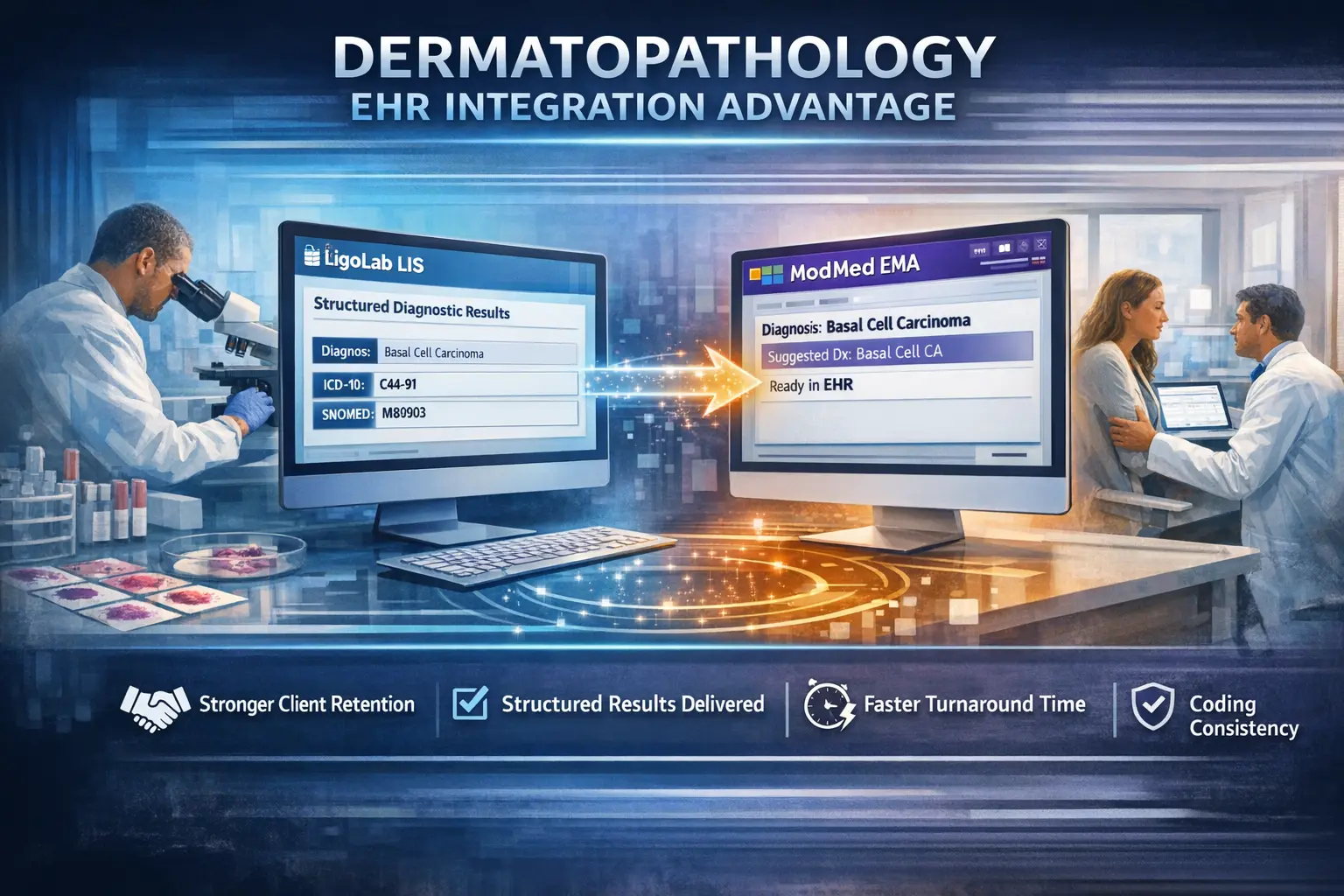Blog
Is the Fear of Failing a Problem at Your Laboratory?
July 14, 2025
If you’re a laboratorian who has worked at a pathology practice or a clinical laboratory, there’s a good chance that you’ve witnessed the following scenario.
The management at Laboratory X convenes a meeting with all department heads to discuss a growing problem, namely the performance and reliability issues created by its homegrown or legacy pathology lab software, commonly referred to as a laboratory information system or LIS in healthcare.
Management has plans to grow the business, but those plans are on hold because the lab has struggled to maintain its current customer base. Inefficient lab workflow management and time-consuming manual processes have led to mistakes like lost or mislabeled specimens, resulting in unacceptable turnaround times and a damaged reputation in the marketplace. Widespread frustration among all departments is evident, and something needs to change, fast.
From this meeting, management has decided that enough is enough and that it is time to start engaging laboratory information system companies to find the best LIS system and begin pursuing the lab’s stated goal of efficiently growing.
The positive result of this meeting energizes all department heads, and they quickly relay the good news to their colleagues. Much-needed change is on the horizon and everyone is on board even though this laboratory information system software implementation will be a large undertaking.
Soon after the meeting, a committee is appointed to research the different laboratory software systems and gather a list of LIS software vendors to contact for more information and schedule pathology lab software demonstrations.
Learn More: How to Set Up a Committee to Select a Laboratory Information System
After several rounds of demonstrations with various LIS software vendors and their LIS systems, the committee has come up with what they feel are the best LIS fits for the lab and recommended their choices to management.
Management takes over from here, requesting further demos and business proposals from each LIS company that’s made the shortlist. Then suddenly and without warning, things change and management walks away from the planned organizational change altogether, leaving the LIS software vendors and the rest of the laboratory to wonder why.
What happened? Did cold feet lead to a decision to remain with the status quo? Were the LIS software vendors unable to make a compelling enough argument for change? Can the LIS system project be resurrected or is it a lost cause?

Finding the Right Laboratory Information System is Only Half the Battle
As mentioned earlier, the scenario above is quite common, a no-decision decision and remaining with the status quo is a human trait, as is the fear of failure, where an individual is more willing to accept and deal with a known problem instead of being personally responsible for a wrong decision. The bottom line is humans are programmed to fear messing up more than missing out.
Overcoming the Fear
Resistance to change and the fear of failure can be overcome, and the best LIS software vendors can help extinguish resistance.
First, let’s discuss what lab leadership can do.
- Recognize that fear is a factor - Accept and acknowledge that this fear of failure is not only expected but also a valuable opportunity to learn and grow from the experience.
- Set realistic goals and expectations - Modern pathology lab software systems can make a huge difference in the long-term success of a laboratory, but that doesn’t happen overnight or with the flip of a switch. Lab leadership should set and communicate realistic expectations and celebrate even minor progress as it’s achieved.
- Take action - Move forward despite the fear and break down organizational tasks into smaller, more manageable steps.
To help overcome resistance, here are questions that should be asked of LIS software vendors to reassure lab leadership that their pathology lab software is aligned with the lab’s business goals and that it’s in the lab’s best interest to move forward with a laboratory information system LIS partnership.
- Does the LIS company have industry experience and a proven track record of success with independent clinical labs and pathology groups?
- Does the LIS company offer one static solution or does it possess the ability to understand our unique hurdles and tailor the LIS system accordingly?
- Is it a comprehensive laboratory information system that will scale with us when we begin reaching our growth goals?
- Is the LIS company committed to technological innovation and is the LIS system under continuous improvement?
- What type of pathology software information system support does the LIS company offer, and will that support consider our current operational state and future aspirations?
- Has the LIS company been fully transparent with its pricing, including the potential hidden costs for adding new seats, new modules, and upgrades, and is it willing to align with our lab on the licensing of the LIS software by offering a low start-up cost rather than a large upfront capital investment?
Learn More: LigoLab Informatics Platform: Uniquely Designed Pricing to Deliver Maximum Value

Focus on the Reward, Not the Risk
Another way to overcome this fear and resistance to LIS system change is for the laboratory to shift its focus from concentrating on the potential risks to the rewards it will realize soon after implementing a modern laboratory information system. For example, check out the case studies available below. They highlight how medical lab growth goals were achieved after upgrading to a new LIS system.
In the first case study, Eastern Connecticut Pathology Consultants (ECPC) established three main objectives that it wanted to accomplish by adding a modern anatomic pathology software system (anatomic pathology software).
Case Study 1: How ECPC's Laboratory Information System Partnership Led to an Enhancement of Lab Operations and Business Growth
In the second case study, Northwest Pathology (now known as Avero Diagnostics) is featured. The study reveals how implementing pathology lab software with a fully integrated laboratory billing solution has radically improved the operational and financial performance of the business.
Case Study 2: Leveraging LIS & RCM Integration to Improve the Laboratory Billing Process

LigoLab Informatics Platform, Pathology Lab Software for Independent Labs
Is your pathology group or clinical/reference laboratory ready for a pathology lab software upgrade? If yes, be sure to check out what LigoLab has to offer.
Dating back to 2006, LigoLab has been partnering with independent labs to develop and engineer a lab informatics platform specifically built to overcome common hurdles that all labs face. With the LigoLab Informatics Platform as the centerpiece, independent laboratories can scale efficiently and leverage a comprehensive and agile laboratory information system to navigate industry challenges and seize growth opportunities.
See how LigoLab’s comprehensive and flexible platform can digitally transform your organization. Contact our team today and start a conversation.







